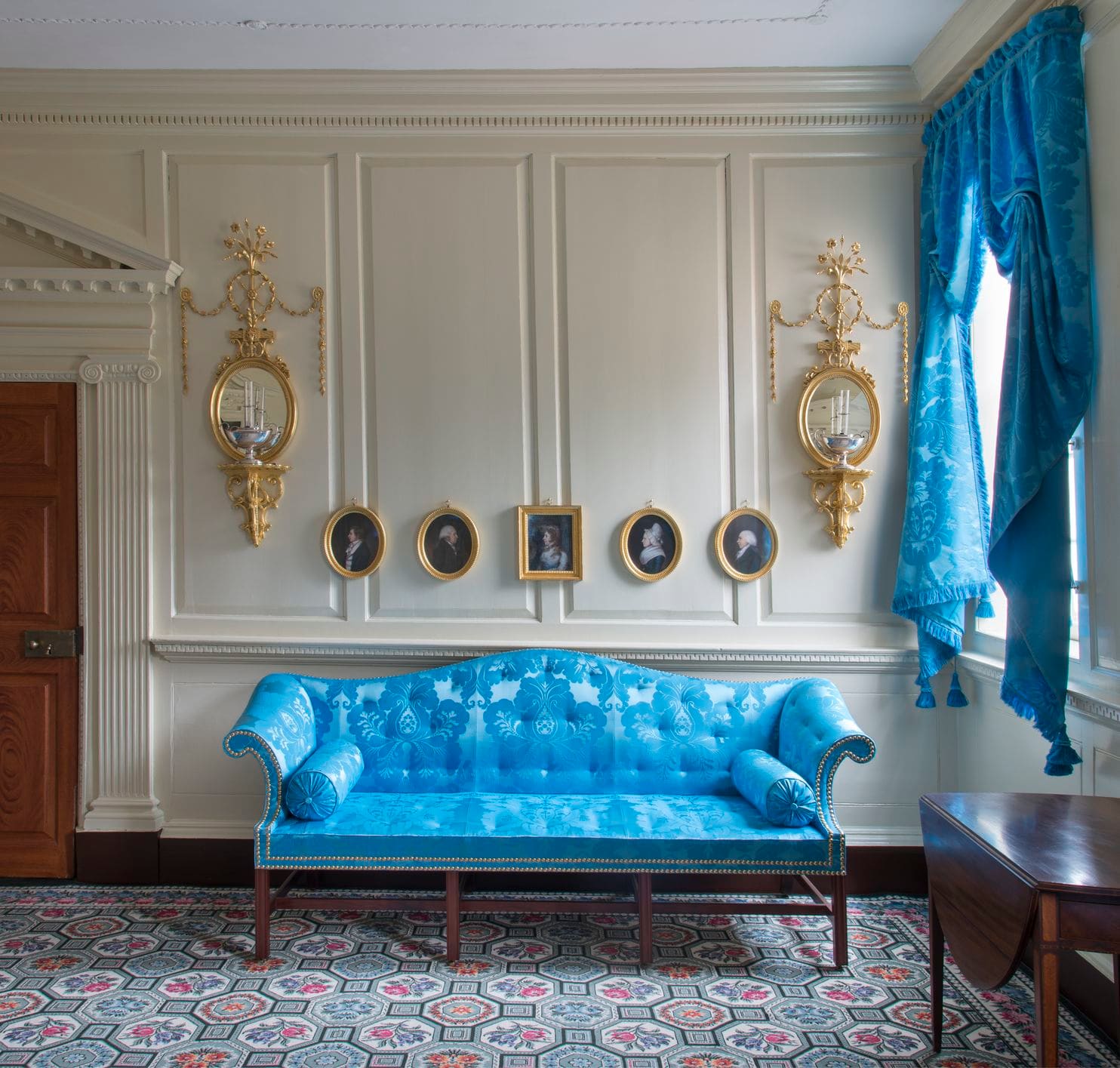In looking at the restoration of the front parlor, we can learn a lot about the Washington family, life in colonial America, and the art of historic preservation.
-
Fall 2019 - George Washington Prize Books
Volume64Issue5
It's easy to see why curator Adam Erby gets excited entering the front parlor at Mount Vernon, which was recently reopened to the public after being closed more than a year for renovation. He and his colleagues now know that the paint colors and furniture are very similar to what was actually here 250 years ago.
The Washingtons most often welcomed guests in this room to the left of the front door of Mount Vernon. One of the most important spaces in the house, it was designed to impress visitors and display the Washingtons’ wealth with its elaborate moldings, family portraits, and some of the first upholstered furniture to appear in Virginia.
But, until recently, no one knew how the room was actually painted or decorated. In 2013 date, Mount Vernon acquired an important document, the Fairfax Ledger, which provides important clues about what furnishings were actually in the parlor – a notation about George Washington’s purchase of a sofa and eight chairs from his neighbors, George and Sally Fairfax, at Belvoir in 1774. The ledger indicates that the furniture was upholstered in Hessian blue.
The year before, as difficulties between the colonists and British Parliament increased, the Fairfaxes decided to return to London. George Washington agreed to sell or rent the Beloir plantation for his friends. In June 1774, he wrote Fairfax that he had “advertizd the Publick of this matter, also of the Sale of your Furniture, as you may see, by the Inclosd Gazette.” Washington also noted, interestingly, that the newspaper included “our American transactions respecting the oppressive and arbitrary Act of Parliament.”
Years before, in 1758, young Major Washington was smitten with his neighbor, beautiful Sally Fairfax, having written her (four months after becoming engaged to Martha) that he was “a votary of love” and drawn by her “amiable beauties and the recollection of a thousand tender passages.” “Washington in Love” is another story, but as an older man George must have recalled his youthful yearnings each time he spotted the sofa Sally once sat upon.
In any case, when historians discovered the notations in the Fairfax Ledger, they could reconstruct what furniture was in the room. Sofas (the term comes from the Arabic word suffah, meaning ledge or bench) were only just becoming popular in France and with the very wealthy.
“The sofa and upholstered chairs would have been very impressive for visitors,” says Associate Curator Adam Erby. “At the time, probably only five or six families in Virginia would have had upholsered sofas -- the Washingtons, Fairfaxes, Carters and a couple of others. This really made a statement.”

In the late 1700s, chairs were usually made only of wood. Visitors to Mount Vernon would have been awed to see padded backstools covered in “Saxon blue” silk and worsted wool damask.
The Mount Vernon parlor was closed for renovation for more than a year.
The parlor was unveiled last month and looks significantly different than before. After preservationists analyzed paint samples and took apart paneling, they discovered that the original paint color during George Washington’s time was a buttermilk white, far different from the blueberry blue which it was painted in until recently.
This single room can teach us much about furnishings in the 18th century.

